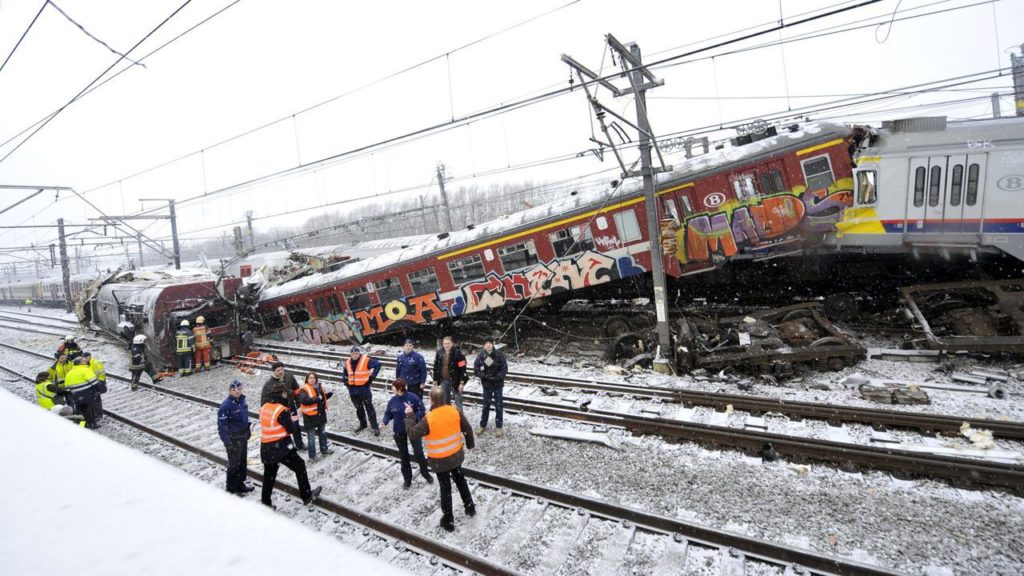The rail infrastructure company Infrabel has been fined €330,000 for failures that led to the rail disaster at Buizingen in Flemish Brabant in 2010 in which 19 people died.
The accident occurred in February 2010, when a train travelling from Leuven to Braine-le-Comte passed through a red light and collided with an intercity train travelling from Quiévrain to Liege. The collision, one of the most deadly rail accidents in Belgian history, led to 19 deaths, and 310 people were injured.
Criminal charges were finally brought against the rail authority SNCB, Infrabel and the driver of the first train in 2019. He was declared guilty but escaped punishment after the court said he was only the last link in a chain of failure, in which the two authorities were most culpable.
The SNCB was fined €550,000, half of it suspended, and accepted the sentence. Infrabel received the same fine, appealed and has now been fined €330,000, half of which is suspended.
The judge recognised that Infrabel has made efforts in the intervening years to improve security and make such accidents less likely in the future. Representatives of the victims and their families were less charitable.
“After 11 years there is finally relief,” said Jan Buelens, lawyer for several victims. “Infrabel pulled out all the stops to avoid their conviction, but the judge has confirmed that they made several mistakes, including a lack of coordination with the SNCB.”
Infrabel has argued it was appealing not in regard to the fine, but to the content of the court’s arguments in support of its verdict.
“If we accept this verdict, our work will be impossible,” Infrabel said after the conviction in 2019.
“We will have to redesign everything and organise train traffic differently. That would mean that we could only have 400 trains a day allowed to run through the Brussels north-south connection, instead of 1,200 trains now.”
Having now read through the appeal court’s verdict in full, the authority has decided not to appeal the case further to the Cassation Court.
“The judgment handed down today is highly technical [...] but no longer takes into account the considerations of the first judge, which would have resulted in, among other things, much fewer trains running on the rail network,” a spokesperson said.
Alan Hope
The Brussels Times

